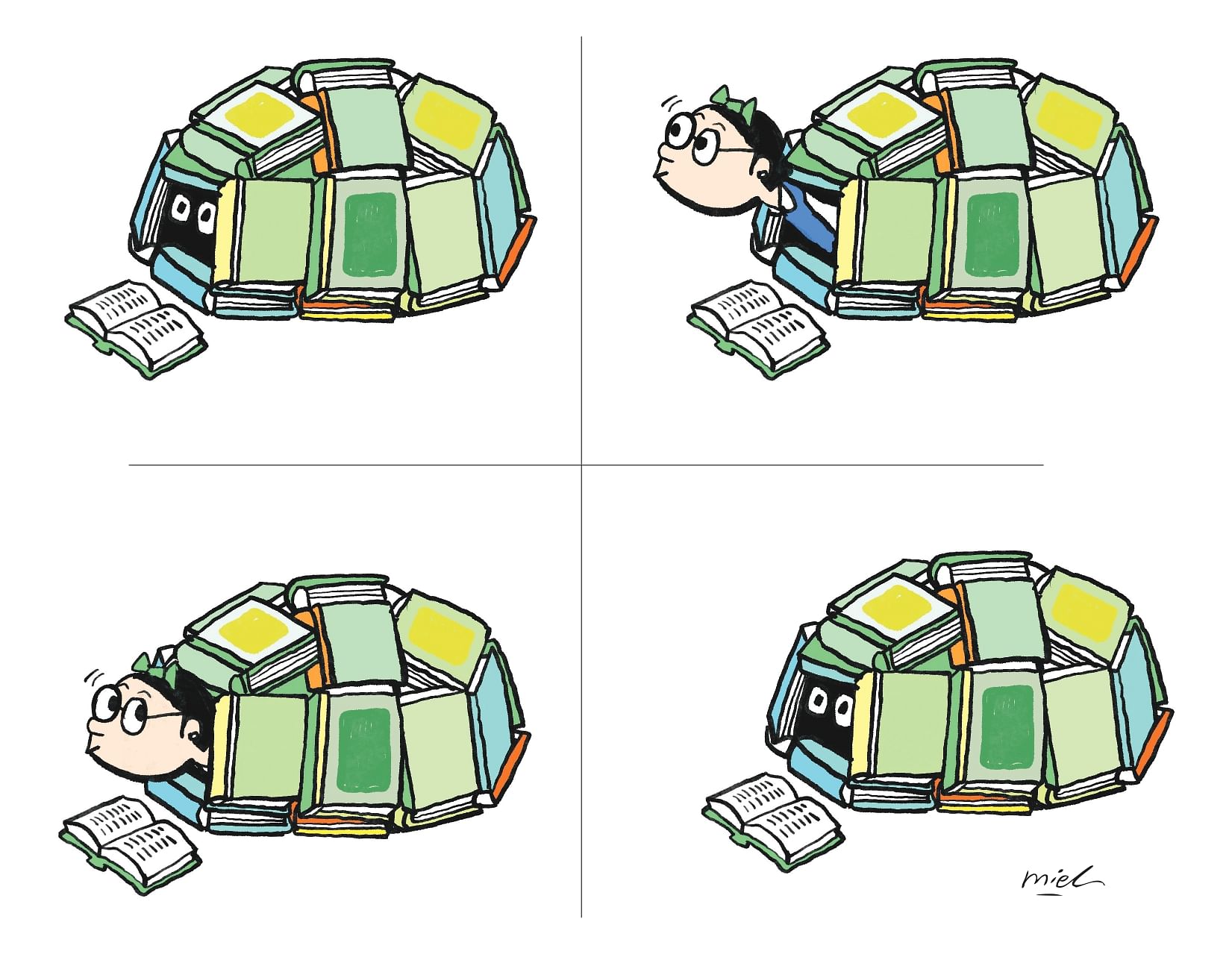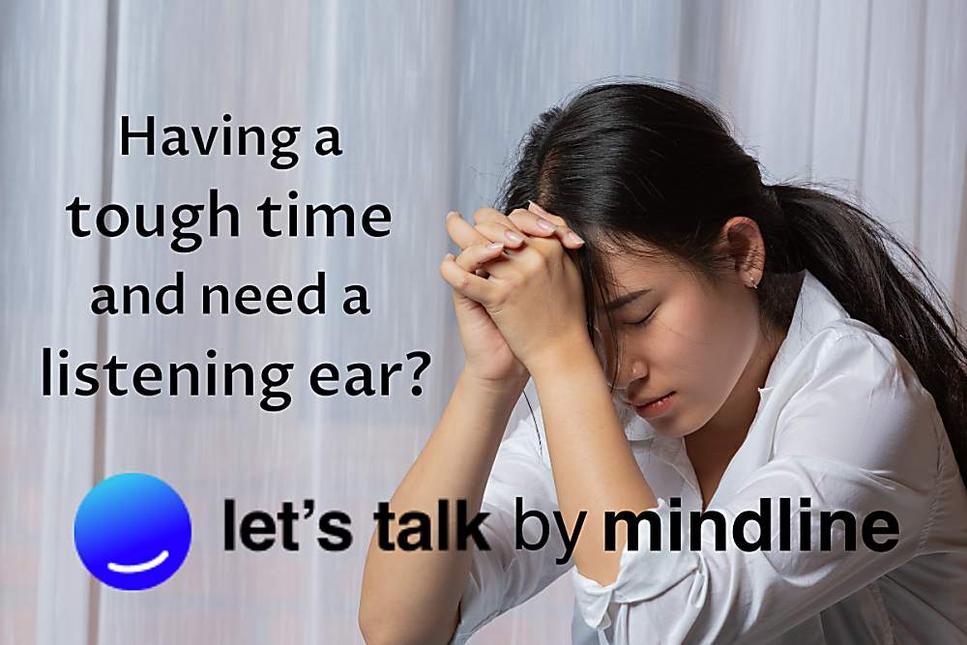The joys and worries of being an only child
As a child you don’t have to fight for your parents’ attention. But are you prepared for old age?

If I had a dollar for each time I was asked “Are you lonely being an only child?” when I was growing up... well, you get my drift.
I always answered “no”, which was a truthful reply. Besides, I couldn’t miss what I didn’t have, or fully imagine or comprehend what it would be like to be part of a group of noisy siblings.
As a kid, I loved my books. Absorbed in the various characters from Enid Blyton, The Hardy Boys and Nancy Drew, I was happily ensconced in another world of outdoor fun and adventure with no chance of being disturbed or bullied by a sibling.
My parents were around, and my grandmother lived with us, and I certainly didn’t lack for a loving environment. However, shhh, I was happier when the adults were out so that I could retreat to my books and “companions”.
So check – hardly a lonely only, despite the prevailing wisdom.
Lonely onlys and goodness knows what else
Indeed, only children may not be all that lonely. The University of Texas at Austin had a 2021 paper which looked at whether adolescent only children in China experienced more loneliness than their peers with siblings.
As preparing for highly competitive college entrance exams and transitioning to college after high school graduation could be two critical issues intensifying such loneliness, the researchers looked at young Chinese adults in six cities. The findings revealed that Chinese youth who grew up with siblings reported greater loneliness than only children.
The team pointed to recent research showing that only children spend more time with and are closer to their parents than children who grow up with siblings. They were also likely to have more frequent contact with their grandparents. The researchers surmised that such only children, especially those in urban areas, did not expect sibling interactions and therefore did not miss them.
But if not particularly lonely, what about being less sociable – another observation commonly directed at the onlys?
Ah here, I stand guilty. I can’t claim to have been a social butterfly at school, where I had only a few friends and it was a huge ordeal when I was called on to answer questions in class.

Interestingly, there is research that points to the contrary. According to a 2010 New York Times report on a paper titled Good for Nothing? Number Of Siblings And Friendship Nominations Among Adolescents, by Donna Bobbitt-Zeher and Douglas B. Downey from Ohio State University, only children had just as many friends as children with siblings.
Using a sample of 13,466 students in the seventh to 12th grades, the researchers counted how many people named each individual as a friend.
Perhaps this is an indication of how times have changed from the days when I was growing up. Perhaps being an only child now is less of a recipe for being an anti-social, lonely, self-centred brat than it used to be.
That’s probably because, while still in the minority, only children are getting more common.
According to the statistics, in Singapore, from 2012 to 2022, the proportion of resident ever-married females aged 40-49 with one child went from 20 per cent to 24.4 per cent. The proportion of those with no children also rose, but those with two children and more fell.
Nowadays, being less sociable is mitigated by the way the education system works. Babies early on become aware of the existence of other babies at infant care, ditto for childcare. At pre-school, kids are encouraged to speak up and participate. They work in teams and undertake projects. They learn how to share.
Parents too are acutely conscious of their children needing to pick up social skills.
In the US research that I cited, Dr Downey suggests that school, youth clubs and other group activities – as enthusiastic parents pack the child’s schedule with activities – allow the onlys to sharpen their social skills.
That mirrors what happens here. Play dates and enrichment activities are lined up with the zeal of a CEO’s personal assistant.
If I were an only child growing up now, I would be bouncing from pillar to post with nary a chance to hide behind a rock and be anti-social. Instead of holding court with my imaginary companions, I would be dragged kicking and screaming into participating in school activities.
Perhaps illustrating that the environment can play a crucial role, after many years on the job, I now manage to interview newsmakers from all walks of life without getting too overwrought.
I may never be crowned Miss Sociable, but training and exposure can make a big difference.
One-child phenomenon
The number of children to have, indeed whether to have children at all, is an intensely personal decision.
For those one-child families that I’m aware of, the costs of raising a child are not an overriding factor.
For example, I know one or two who are single mums, either by choice or circumstance. In the Singapore context where eyebrows are still raised at being a single mum, that often means stopping after one child.
Or there were some who married older men, be they single, divorced or widowed. Having one child satisfies the longing for motherhood, and given the age of the husband, it might be unwise to have another.
I also know other couples who were going full tilt at their business or careers. Having the requisite one child completed the family unit for them and satisfied the grandparents. After that, they went on to focus on their professional lives.
Then there are also the couples who felt they didn’t have the energy to cope with an additional child, given work pressure and wanting to be exemplary parents in terms of giving the child time and the best of everything. They stopped at one.
And some of the older mums had cold feet about a No. 2 in case the child had health issues.
Overseas, the lack of childcare for working women is one reason for having fewer kids.
What about these onlys as they grow up?
Onlys are said to be creative (confidently gives self a pat on the back) with leadership qualities. Just like firstborns, they get that zing from the intense parenting.
Bringing up an only child is like painstakingly training that beautiful bonsai plant versus tending to a garden plot. Both are valid choices.
Despite all that attention, I don’t think I felt burdened by the weight of parental expectations to be... a pioneering doctor! A high-profile lawyer! But I do know of only children who cracked under that pressure. No generalisations can be drawn here, I feel. Some children, regardless of being an only child or part of a larger family, shrivel under the spotlight of parental scrutiny while others thrive happily.
Nowadays, among parents of the younger generation, their concerns are less about securing that lucrative career for the child than about how well adjusted he grows up.
When I spoke to a friend who has just the one adult son, she said: “I try to spend both quality and quantity time whenever I can; I used to travel a lot for work, but now I’ve taken a step back, and we try to do activities together.” Her priority is to ensure that her son gets sufficient emotional support, be it through friends, cousins or other family members.
I have been blithely reassuring friends and parents that an only child hardly feels lonely, partly relishing the fact that I have never had to compete with a sibling for my parents’ love or attention.
However, as I ease into middle age, I see another aspect to being lonely. There is no one to share memories of growing up once parents are gone. Contrast that to those with siblings, with whom you can say, do you remember that family holiday, or remember how you broke my toy when we were playing together?
And in terms of family dynamics, there will be no one to share the burden of caregiving.
Consider this figure: The old-age support ratio (the number of residents aged 20-64 years per resident aged 65 years and over) in Singapore decreased from 4.0 in 2021 to 3.8 in 2022.
Unless we all start reproducing like rabbits, this ratio can only get worse.
For the only child who does not get married, having to care for aged parents is challenging. He has the sole responsibility of making important caregiving or medical decisions.
In this regard, I am blessed to have an extremely supportive husband. (Key action point: Find a supportive spouse.) In addition, I have cousins who I can turn to, even though several are overseas. But that’s still not the same as having a sibling who would understand the parents’ wishes better. At the end of the day, it is the children who have to bear the responsibility for caregiving decisions. There is therefore the emotional loneliness that comes from not having a sibling to share this burden.
It can also be a long and frustrating journey at times. A friend of mine mentioned filial children she knows who are devoted to caring for their elderly parents with dementia. But with life expectancy extending to 80 years and beyond, by the time the elderly parent passes away, these children would be well into their 60s and have probably retired.
At that point, they are freed from the role of caregiver. But after putting their life on hold for years – not being able to travel or live overseas, for example – they need to rebuild their life and carve out a new identity. Is there enough time to do that before they themselves grow old and infirm?
Another friend I know was single for many years, but eventually she married and moved to China to join her husband, while her mother was too old and unwilling to move. It was a choice that left her both guilty and happy as she started her new life overseas.
Back to my friend and her adult son. If he does get married, that might help in the caregiving, but he might marry another only child. At that point, it is not difficult to imagine the conflict that could arise as both try to ensure equitable treatment between parents and in-laws!
It will also be more challenging for their offspring, who will not have any cousins as family support.
Still, this commentary is not meant to be a plug for procreation. Given the small family sizes nowadays, even where there are siblings, some may migrate overseas or remain single and the resulting scenario is often not too different from this nuclear family.
Preparing for an only universe
As the proportion of single-child families rises, the question of “Are you lonely?” should be retired. It should be replaced instead by the question: “Are you ready to be an elderly only?”
Only children may be fortunate in that they do not have to vie for parents’ attention, but this advantage is less clear when they grow up. In preparing for adulthood and beyond, they should develop and maintain social and emotional networks, something that parents can help them to do too.
Join ST's Telegram channel and get the latest breaking news delivered to you.





No comments:
Post a Comment